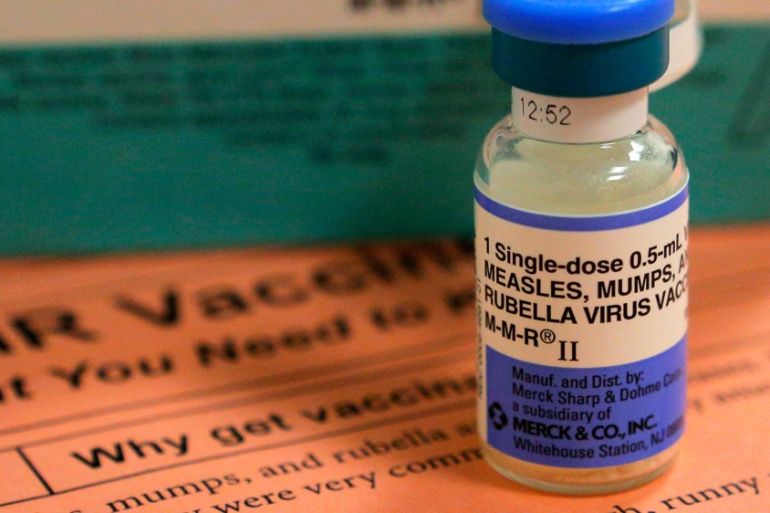Measles cases hit record high in Europe: WHO
This year, more than 41,000 people have been infected and at least 37 have died as a result of the contagious disease.

A record number of measles cases has been recorded in Europe, the World Health Organization (WHO) has said.
More than 41,000 people have been infected and at least 37 have died as a result of the contagious disease in 2018 so far.
Keep reading
list of 4 itemsUK set to ban tobacco sales for a ‘smoke-free’ generation. Will it work?
Poland lawmakers take steps towards liberalising abortion laws
First pig kidney in a human: Is this the future of transplants?
It is the highest number of infections this decade, beating last year’s number of 23,927.
“Following the decade’s lowest number of cases in 2016, we are seeing a dramatic increase in infections and extended outbreaks,” Zsuzsanna Jakab, WHO Regional Director for Europe, said in a statement.
“Good health for all starts with immunisation, and as long as this disease is not eliminated we are failing to live up to our Sustainable Development Goal commitments,” Jakab added.
The vast majority of infections this year occurred in Ukraine, where more than 23,000 people have been diagnosed with the disease.
Serbia has seen the highest number of deaths so far, with 14 people dying from the measles there.
According to the WHO, measles outbreaks can be stopped but immunisation rates have to be higher than 95 percent. However, the average immunisation rate for the whole of Europe was just 90 percent, with some areas reporting percentages as low as 70 percent.
“We can stop this deadly disease. But we will not succeed unless everyone plays their part: to immunise their children, themselves, their patients, their populations – and also to remind others that vaccination saves lives,” Jakab said.
Two years ago, Europe had a record low of measles instances, with only 5,273 people infected.
Last year, that number rose to 23,927.
“This partial setback demonstrates that every person who is not immune remains vulnerable no matter where they live, and every country must keep pushing to increase coverage and close immunity gaps, even after achieving interrupted or eliminated status,” said Nedret Emiroglu, director of the Division of Health Emergencies and Communicable Diseases at the WHO.
‘Million of lives saved’
Measles is a potentially deadly viral disease, mostly spread through coughing and sneezing.
For infected people, most often children, there is currently no cure, but widespread vaccination programmes have resulted in an 84 percent decrease in the number of people killed by the disease between 2000 and 2013, the WHO reported.
In 2016, the WHO recorded 89,780 deaths, mostly children, as a result of the measles globally, making it the first year less than 100,000 people had died from the disease.
Before 1963, when the measles vaccine became widely available, around 2.6 million died of the viral infection on a yearly basis.
The WHO estimates vaccination programmes have saved around 20 million deaths between 2000 and 2016.